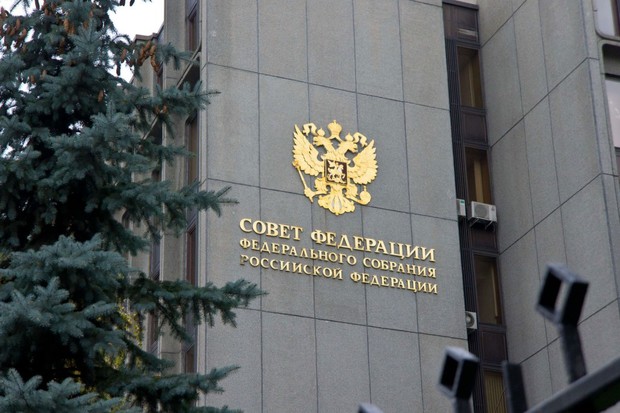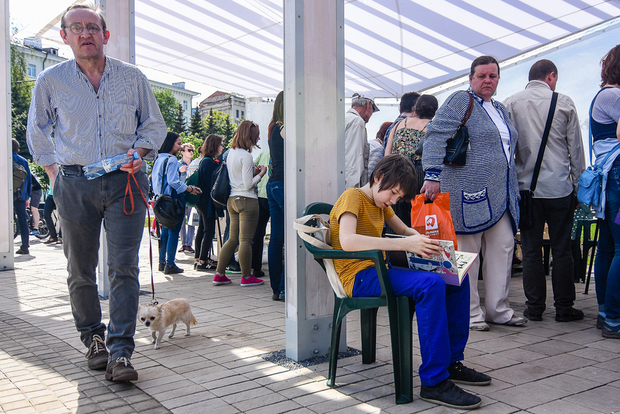Maksim Krongauz: ''The Russian language does not belong to the state''
Famous linguist tells about overcoming ‘’injustice’’ in the language, fashion for books and advantages of individuality against globalisation
Professor Maksim Krongauz in the first part of our conversation told about the era of memes and about the dialogue between the authorities and the society in Russia. In the final part of his interview to Realnoe Vremya, he explains why we should not switch to the Latin alphabet and what determines the degree of pressure on the Russian language in the republics of the former USSR.
Latin alphabet? There are objections
About the changes of the language. In your opinion, should we switch the Russian language to the Latin alphabet?
Some time ago, in the Soviet time, a German Slavist was with a visit in my home. Slightly drunk and relaxed, he asked the question that worried him: ''Why don't you switch to the Latin alphabet?'' I said that it would be very inconvenient for everyone, everyone would be against… He confidentially advised: ''But you have a totalitarian state. Just order them.''
The transition to the Latin alphabet is possible, and this was proved by our neighbours — Azerbaijan and Moldova. Some of the neighbours, such as Kazakhstan, are discussing the shift schedules.
However, there are at least two objections. The first one is material, or in very simple terms, financial. Imagine how much they would have to change — from passports to signs with names of the streets, how many books will be needed to republish and how much it will cost. The second one is intangible. Language is largely a habit. Any drastic change causes discomfort of its speakers. Let's recall two episodes in our history. The already mentioned reform of the graphics and spelling of 1917-1918 caused the rejection in the first place of the educated public, of writers and journalists. Bunin and other writers who lived in exile, refused to switch to a new alphabet. The second episode is less noticeable, but closer to us in time. We already switched to the Latin alphabet, when e-mail appeared, when it did not have Cyrillic yet. We wrote using the Latin alphabet, everyone as they wanted, but they did it with some tension and even resistance. These objections, it seems to me, are enough not to switch to Latin.

''The transition to the Latin alphabet is possible, and this was proved by our neighbours — Azerbaijan and Moldova. Some of the neighbours, such as Kazakhstan, are discussing the shift schedules.'' Photo: inform.kz
If to look at it philosophically, abstracting from specific people, then such transition always has advantages and disadvantages. On the one hand, it is globalization and unification, on the other hand, it is diversity and identity. Diversity and associated competition are actually valuable things.
What is happening to the Russian language in the countries of the former Soviet Union?
Each country has its own situation. For example, the position of the Russian language in Latvia is quite different from neighbouring Estonia and Lithuania, and in Georgia — from Armenia. It would be really silly to join Belarus and Ukraine in the conversation.
Since a detailed response is impossible right now, I will tell a consideration about the cause of many problems. The attitude to the Russian language is being too politicized, and the more people speak it the more it is. The Russian language is treated as one of instruments of the Russian Federation, with the help of which it conducts its foreign policy. The Russian language is perceived as a competitor of the national state language, especially in those cases when Russian is spoken by many people. That is why, for example, the situation in Estonia is better than in Latvia, and the situation in Lithuania is even quieter because Russian speakers are few here, and restrictive measures against Russian are not so strong here. In those countries where the Russian language is strong, where there are many Russian-speaking residents, it is very often under pressure, and sometimes this leads to explosions of great strength. Accordingly, in certain situations, it is necessary to protect from it, its impact should be limited. In Russia, this idea is only reinforced. A few days ago, I read that the Federation Council discusses how to control the Russian-speaking media that have an audience in Russia, even if they are registered abroad. In other words, it is implied that that all that is written in Russian, to some extent, belongs to the Russian state.
But the Russian language does not belong to the state, rather it can be said that it belongs to the Russian culture and all the people who speak it, regardless of where they live and which citizens they are.

''A few days ago, I read that the Federation Council discusses how to control the Russian-speaking media, who has an audience in Russia, even if they are registered abroad. In other words, it is implied that that all that is written in Russian, to some extent, belongs to the Russian state.'' Photo: turov.pro
How strong, when the borders between cultures are blurred, is human thinking being under a linguistic oppression, determined by language sustainable forms?
The question of the relationship between language and thinking is one of the most important not only in linguistics, but in general in Humanities. I will try to avoid an answer using a few metaphors. Language can be compared to a cage, where the brain is imprisoned, but it also can be compared to glasses, through which our brain sees the world. Not usual glasses: through them something can be seen better, something worse, in something they help, in something they do not.
The second metaphor I like more, it is more optimistic. That is why I would speak about ''linguistic oppression''. Instead, I can come up with another metaphor — parental care.
''Expansion of books into urban space gives an excellent result''
Probably, in the last ten years, the popularity of audiobooks has been growing, what is more – with the same speed as the popularity of paper books has been falling. How does the fact that people prefer to listen rather than to read books affect the speech and the thinking of people?
It is completely unstudied problem, and it is not clear what are particular implications of speech and thought we could talk about. The very existence of the text in two forms — oral and written — provides us with both ways of perception. In childhood, we listened with pleasure to the stories that parents read us or made up. And then we began to cope with written texts ourselves. One should understand that the text read aloud text is richer than written — it has intonation. Sometimes this means that a narrator puts in us his own interpretation. It's like a movie. Any adaptation is richer than text, it has visual images, but this wealth impoverishes our perception, or rather, narrows its possibilities.
I think that the appearance of audio books is good because in our fast age we now can ''read'' the text when our eyes are busy with something, like when we are driving. With all this, I must confess that I myself do not listen to audiobooks.

''The expansion of books in the urban space — mentioned urban bookshelves, books in restaurants or book festival in the market – were unusual at first, but they give an excellent result.'' Photo: Oleg Tikhonov
How do you think different new-fangled sites in the form of street book-shelves, urban shelves for book exchanges, etc., all these attempts to make reading fashionable help to improve the culture of reading?
I'm sure they do. Fashion is a very important factor in the existence of many things, even of individual words. I remember how scientific lectures became fashionable. Today it is recognized and socially significant action. The expansion of books in the urban space — mentioned urban bookshelves, books in restaurants or book festival in the market – were unusual at first, but they give an excellent result. The book ceases to be perceived as obsolescent, leaving nature and it becomes almost mandatory, familiar and attractive object. It is essential in order to encourage the reading and to save paper book.